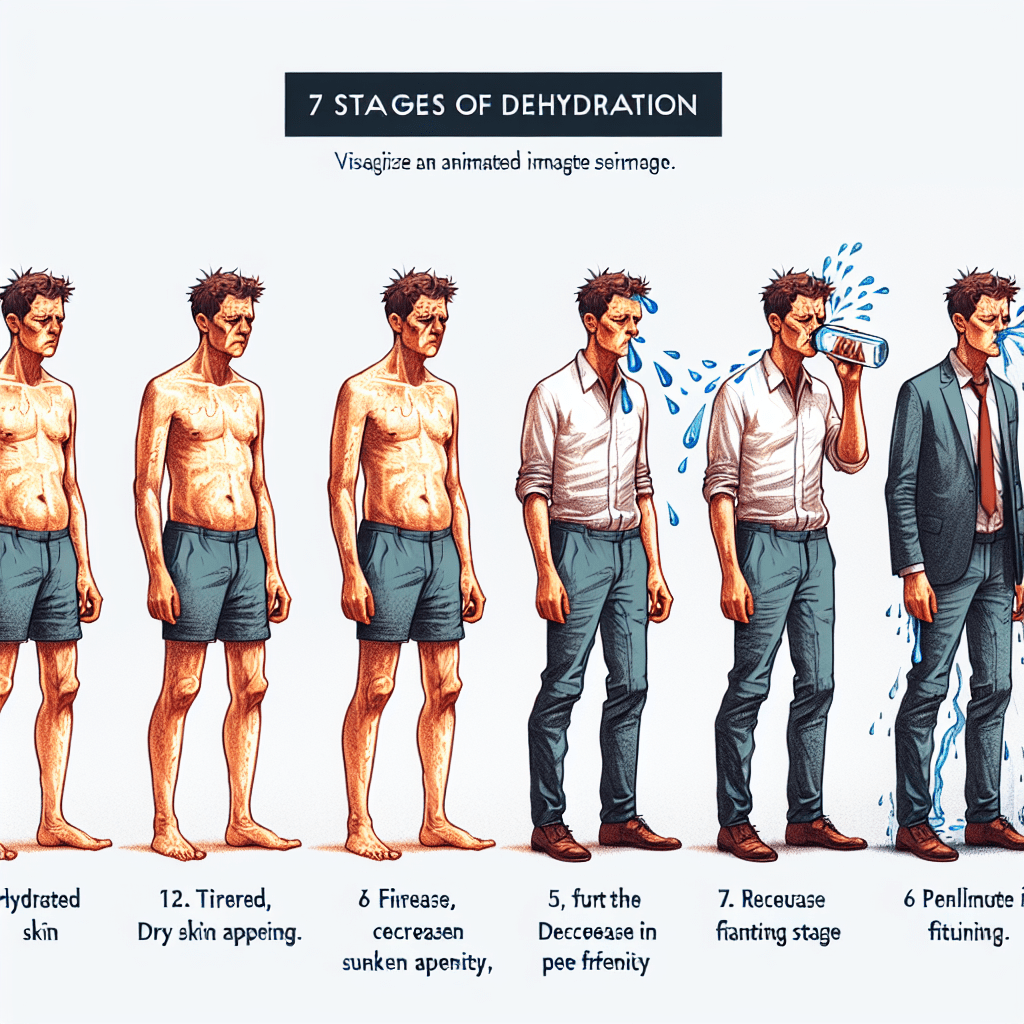7 signs of dehydration

Introduction
Dehydration is a condition that occurs when the body loses more fluids than it takes in, leading to an insufficient amount of water for normal bodily functions. Water is essential for various physiological processes, including temperature regulation, joint lubrication, and waste elimination. Recognizing the signs of dehydration is crucial for maintaining optimal health and well-being. This article explores seven key signs of dehydration and underscores the importance of staying hydrated.
1. Thirst
Thirst is the body's natural response to dehydration. It is a clear and immediate signal that your body needs more fluids. When you feel thirsty, it means your body is already experiencing a mild level of dehydration. Drinking water at regular intervals, even before you feel thirsty, can help prevent dehydration.
"Thirst is a late sign of dehydration." - Dr. Lawrence E. Armstrong
2. Dark Urine
The color of your urine is a reliable indicator of your hydration status. Dark yellow or amber-colored urine often signifies dehydration. Ideally, urine should be light yellow or straw-colored. Monitoring the color of your urine can help you gauge whether you are drinking enough fluids throughout the day.
3. Dry Mouth and Skin
Another common sign of dehydration is a dry mouth. When your body lacks sufficient water, it reduces saliva production, leading to a dry, sticky feeling in your mouth. Similarly, your skin may become dry and less elastic when you are dehydrated. Keeping your skin moisturized and drinking plenty of water can help alleviate these symptoms.
4. Fatigue and Dizziness
Dehydration can lead to a decrease in blood volume, which in turn causes a drop in blood pressure. This can result in feelings of fatigue and dizziness. If you experience unexplained tiredness or lightheadedness, it could be a sign that you need to increase your fluid intake.
"Dehydration can impair cognitive performance and mood." - Dr. Harris Lieberman
5. Headaches
Headaches are a common symptom of dehydration. When the body is dehydrated, it can cause the brain to temporarily shrink from fluid loss, leading to a headache. Drinking water can help alleviate headache symptoms and prevent them from occurring in the first place.
6. Decreased Urine Output
If you notice that you are urinating less frequently or producing smaller amounts of urine, it could be a sign of dehydration. The body conserves water when it is dehydrated, resulting in reduced urine output. Ensuring adequate fluid intake can help maintain normal urinary function.
7. Rapid Heartbeat
Dehydration can cause your heart to work harder to pump blood, leading to a rapid or irregular heartbeat. This is because the blood volume decreases, making it more difficult for the heart to circulate blood effectively. Staying hydrated supports cardiovascular health and helps maintain a steady heart rate.
"Hydration is crucial for maintaining heart health." - American Heart Association
Conclusion
Recognizing the signs of dehydration is essential for maintaining overall health and well-being. Thirst, dark urine, dry mouth and skin, fatigue and dizziness, headaches, decreased urine output, and a rapid heartbeat are all indicators that your body needs more fluids. By paying attention to these signs and drinking water regularly, you can prevent dehydration and support your body's vital functions.
In summary, staying hydrated is crucial for optimal health. It helps regulate body temperature, supports cardiovascular health, and ensures proper cognitive function. As the American Heart Association emphasizes, "Hydration is crucial for maintaining heart health." Make a conscious effort to drink enough water each day to keep your body functioning at its best.



